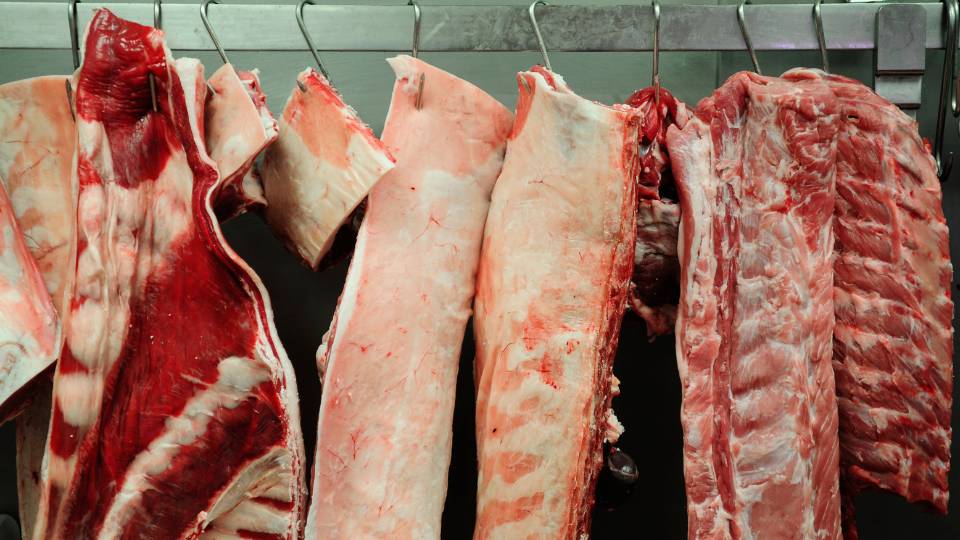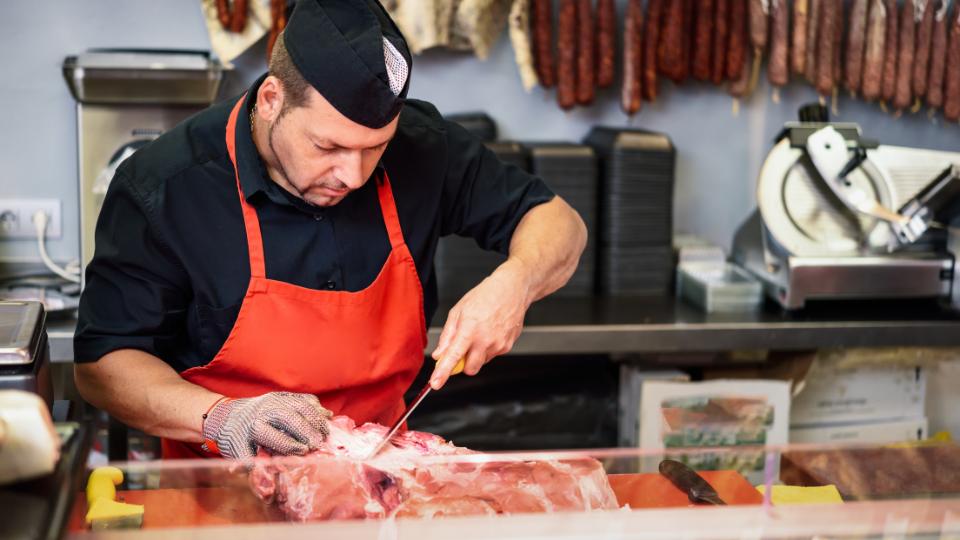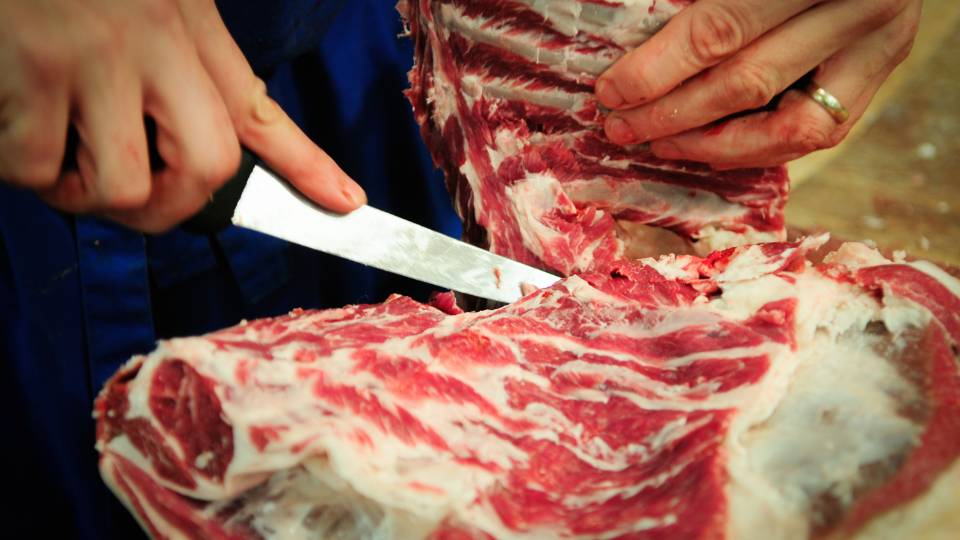
For business owners in the UK, understanding the ins and outs of butcher’s waste is not just about keeping operations clean; it’s also an environmental and legal responsibility.
This guide will discuss everything you need to know about managing butcher’s waste, from identifying what qualifies as butcher’s waste to navigating the legal landscape that governs meat waste disposal.
Table of Contents:
- What is Butcher’s Waste?
- What Waste Services Does a Butchers Need?
- Which Bin Do You Use for Meat Waste?
- How to Manage Butcher’s Waste
- Meat Waste Disposal
- Best Practices for Butcher’s Waste Management
- Butchers Waste Laws and Regulations in the UK
- Butchers Waste Facts and Statistics
- Conclusion
What is Butcher’s Waste?
Butcher’s waste includes a variety of materials generated during the processing of meat.
Such as bones, tissue, fat, and any part of an animal that is not sold as meat products.
While some of this waste can be repurposed or recycled, a significant portion requires careful disposal to prevent environmental harm and to comply with health regulations.
What Waste Services Does a Butchers Need?
For most butchers, you’ll need a general waste bin, recycling bin, and food waste bin.
Red Anatomical waste bags are also often used for animal products.
And finally, clinical waste bins may also be appropriate for any bloodied gloves and masks.
You’ll also need regular collections (either weekly or fortnightly) to avoid smelly bins.
Which Bin Do You Use for Meat Waste?
Raw, cooked, and partially cooked meat can be put into a food waste bin.
It shouldn’t go into a general waste or recycling bin.
A commercial waste collector (like us) should be able to offer a food waste bin disposal service. Just enquire.
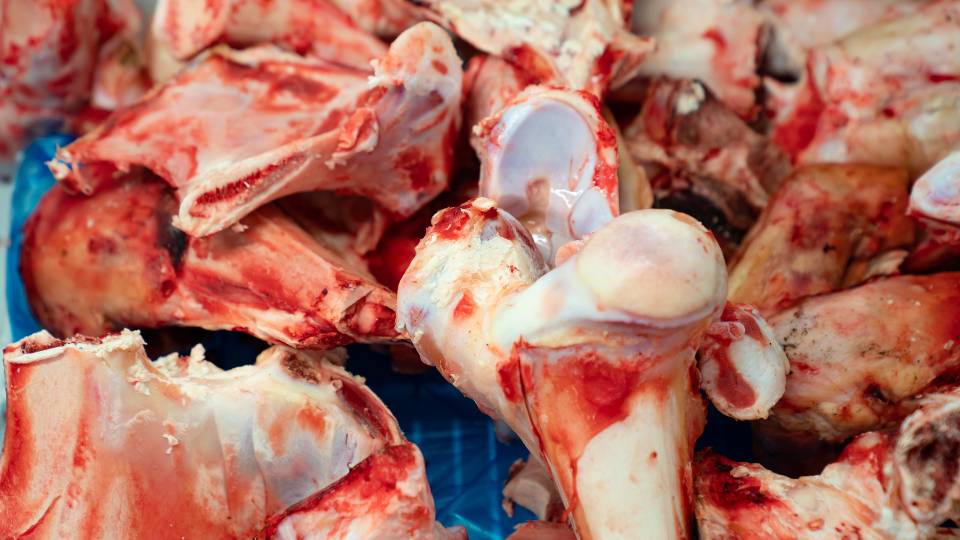
How to Manage Butcher’s Waste
Managing butcher’s waste effectively is critical for maintaining a sanitary workspace and adhering to environmental standards. The process involves several steps:
- Segregation: Keeping different types of waste separate is essential. Keep your animal and meat waste separate from your general waste and recycling.
- Storage: Butcher’s waste should be stored in designated containers with closed lids to avoid contamination and odour issues.
- Disposal and Recycling: Identifying which materials can be recycled or repurposed is key. For instance, fats and oils can often be converted into biodiesel.
Meat Waste Disposal
When getting rid of any meat waste, it’s important to know there are three levels of risk that determine how you should dispose of them. Here’s a simplified breakdown:
- High Risk: This category includes uncooked meats like raw meat, sausages, bacon, gammon, poultry, burgers, eggs, and meat that’s only been partially cooked. You can’t send these to a landfill or use them as animal feed.
- Medium Risk: This group covers all meat products that have been fully cooked beforehand or contain cooked meat (for example, pies), as well as fats or grease from cooking meat or poultry. These items can be thrown away in a landfill, but they’re not suitable for animal feed.
- Low Risk: This includes animal fats and fish oils, eggs or products made from eggs, and dairy products. These can either be disposed of in a landfill or used as animal feed.
Proper disposal of raw or semi-cooked meat is crucial because of the potential health risks they pose. Incorrect storage of meat waste can become a breeding ground for harmful bacteria, posing serious health risks to both your employees and customers. To prevent this, you should:
- Store all meat in the right containers, preferably in its original packaging.
- Have meat waste and animal by-products picked up regularly by a waste carrier that has the proper licenses, like Waste Managed.
- Make sure all your employees are trained on the correct way to store meat waste at your butcher shop.
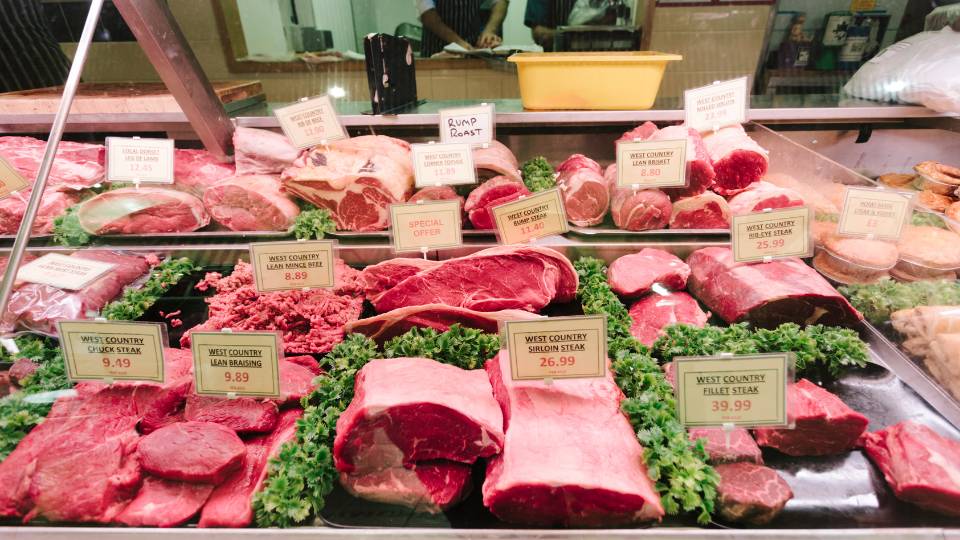
Best Practices for Butcher’s Waste Management
Adopting best practices not only ensures compliance with regulations but also promotes sustainability:
- Minimise Waste: Ensure your staff are making efficient cuts and not discarding useable product. Also, inventory management is crucial to ensure products don’t go off.
- Educate Staff: Training employees on waste segregation and handling procedures is vital. You need to ensure they aren’t throwing away meat and large bones in the general waste or recycling bins.
- Partner with Recycling Services: Collaborating with companies that specialise in recycling animal fats and bones can turn waste into a resource.
Butchers Waste Laws and Regulations in the UK
The UK has specific laws and regulations governing the disposal of butcher’s waste, ensuring that it does not pose a risk to public health or the environment.
Environmental Protection Act 1990
This Act requires businesses to dispose of waste without harming the environment. It includes provisions for the safe handling, storage, and disposal of hazardous materials.
Animal By-Products (Enforcement) (England) Regulations 2013
These regulations cover the disposal of animal by-products not intended for human consumption. They categorize butcher’s waste into three types, each with its own disposal requirements to prevent disease transmission.
The Waste (England and Wales) Regulations 2011
These regulations emphasise the “waste hierarchy,” encouraging waste prevention, reuse, recycling, and other recovery operations over disposal.
This essentially means your business should do its best to not simply discard waste to landfill when it could have been recovered, recycled, or reused.
Regularly putting recyclable material in general waste bins can cause your business to breach this regulation.
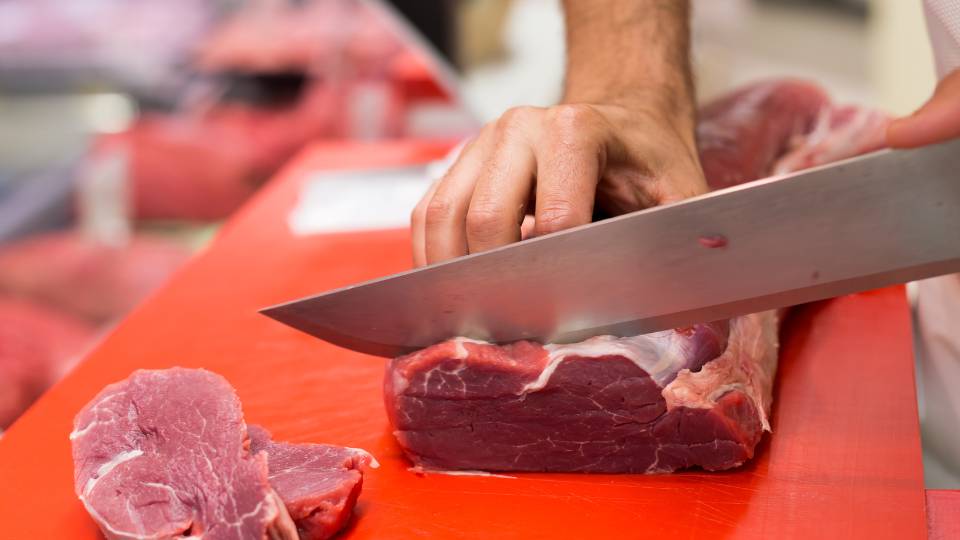
Butchers Waste Facts and Statistics
- Every year about 263 million tonnes of meat is produced but around 1/5 of this is wasted – that’s 53 million tonnes of meat waste. That’s the equivalent of 75 million cows!
- Waste meat around the world only makes up about 4% of all food waste. However, it accounts for 20% of the economic cost of disposal and contributes significantly to greenhouse gas emissions.
Conclusion
Managing butcher’s waste in the UK requires a good understanding of what constitutes butcher’s waste, how to manage it effectively, and the legal framework governing its disposal.
By following best practices and staying informed about the latest regulations, butchers can ensure their operations are not only compliant but also contribute to a more sustainable future.
This guide is a resource for UK-based butchers seeking to understand what they need to know about waste management.
Remember, effective waste management is not just a regulatory requirement; it’s a testament to your business’s commitment to sustainability and public health.

